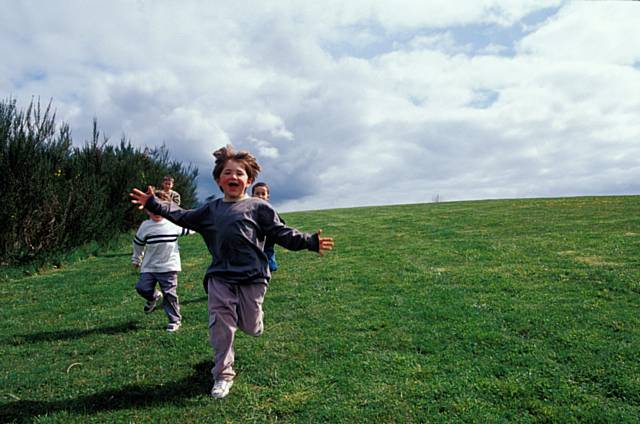Physical activity boosts children's brain power and academic prowess
Date published: 27 June 2016

Physical activity boosts kids’ brain power and academic prowess
Exercise boosts young people’s brain power and academic prowess, says a consensus statement on physical activity in schools and during leisure time, published online in the British Journal of Sports Medicine.
Time taken away from lessons for physical activity is time well spent and does not come at the cost of getting good grades, say the 24 signatories to the statement.
The statement, which distils the best available evidence on the impact of physical activity on children and young people, was drawn up by a panel of international experts with a wide range of specialisms, from the UK, Scandinavia, and North America, in Copenhagen, Denmark, in April of this year.
It includes 21 separate statements on the four themes of fitness and health; intellectual performance; engagement, motivation and wellbeing; and social inclusion, and spans structured and unstructured forms of physical activity for six to 18 year olds in school and during leisure time.
It says that:
- Physical activity and cardiorespiratory fitness are good for children’s and young people’s brain development and function as well as their intellect
- A session of physical activity before, during, and after school boosts academic prowess
- A single session of moderately energetic physical activity has immediate positive effects on brain function, intellect, and academic performance
- Mastery of basic movement boosts brain power and academic performance
- Time taken away from lessons in favour of physical activity does not come at the cost of getting good grades
In terms of the physiological benefits of exercise, the statement says that cardiorespiratory and muscular fitness “are strong predictors” of the risk of developing heart disease and type two diabetes in later life, and that vigorous exercise in childhood helps to keep these risk factors in check.
Frequent moderate intensity and, to a lesser extent, low intensity exercise will still help improve kids’ heart health and their metabolism, while physical activity is a key component of the treatment of many long term conditions in six to 18 year olds.
The positive effects of exercise are not restricted to physical health, says the statement. Regular physical activity can help develop important life skills, and boost self esteem, motivation, confidence and wellbeing. And it can strengthen/foster relationships with peers, parents, and coaches.
And just as importantly, activities that take account of culture and context can promote social inclusion for those from different backgrounds, ethnicities, sexual orientation, skill levels and physical capacity.
Incorporating physical activity into every aspect of school life and providing protected public spaces, such as bike lanes, parks and playgrounds “are both effective strategies for providing equitable access to, and enhancing physical activity for, children and youth,” says the statement.
Do you have a story for us?
Let us know by emailing news@rochdaleonline.co.uk
All contact will be treated in confidence.
Most Viewed News Stories
- 1Failing care home shut by health watchdog following safety concerns
- 2Woman of Rochdale 2024 – Lorenza Pye
- 3Visually impaired campaigners say controversial cycle scheme is unsafe for them
- 4Man charged in connection with assault on Christmas Eve in Sudden
- 5Long-awaited hydrotherapy pool opens for public use in Castleton
To contact the Rochdale Online news desk, email news@rochdaleonline.co.uk or visit our news submission page.
To get the latest news on your desktop or mobile, follow Rochdale Online on Twitter and Facebook.


